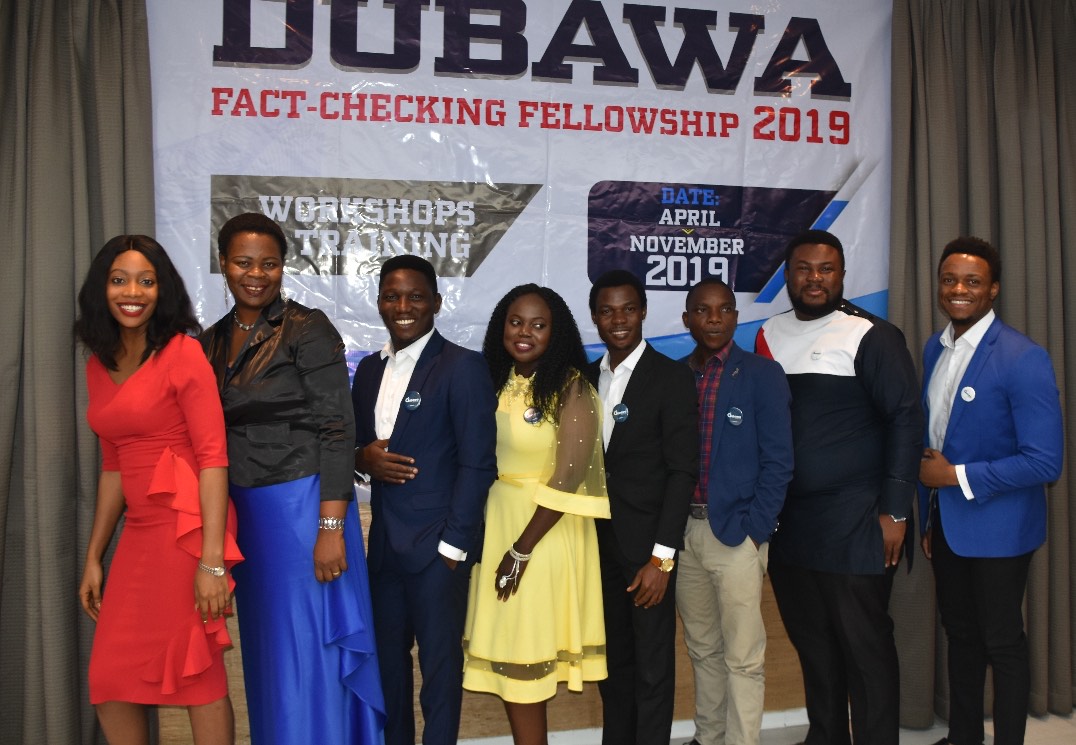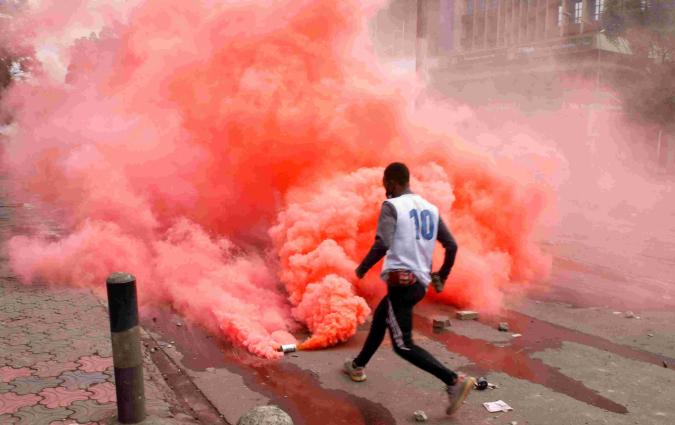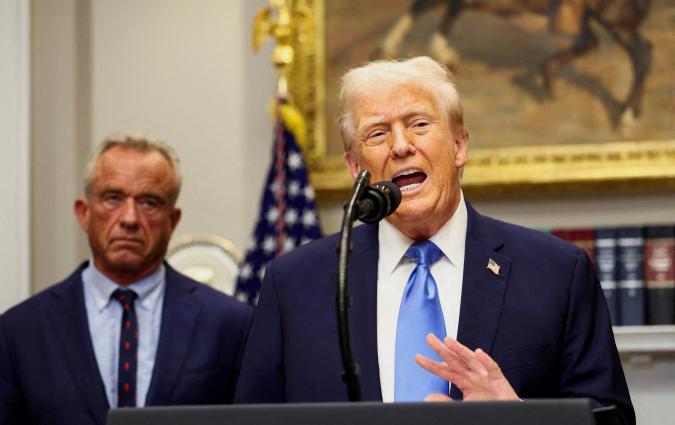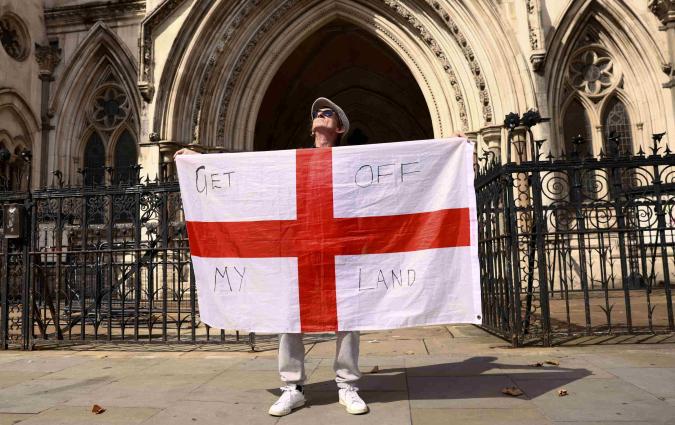How a Nigerian nonprofit is teaching fact-checking to journalists from West Africa

Dubawa's fact-checking team in 2019. | Dubawa
A few months ago, Liberian journalist Josephine Wreh learnt through a colleague about a six-month fellowship programme on fact-checking for West African journalists. She applied and was selected to participate. The initiative was run by Dubawa, a fact-checking nonprofit launched by the Centre for Journalism and Innovation Development (CJID).
Wreh works for Sky Communications Incorporated, a company with both radio and TV outfits. “The experience of being part of a programme teaching journalists in Africa how to fact-check with skills and tools was amazing,” said Wreh, for whom the programme, held virtually as a result of COVID-19 disruptions, was her first training on fact-checking, a useful set of skills in a news ecosystem where misinformation is a growing concern.
Fact-checking is a new discipline in Liberia. Most journalists lack the skills to debunk false information and this training by Dubawa is helping fill this gap. Since its launch in 2018, Dubawa has been promoting a culture of fact-checking in Nigeria by building the capacities of Nigerian journalists through training and through forging strategic partnerships with media and civic organisations across West Africa.
As an independent verification and fact-checking platform, guided by the five principles of the International Fact-Checking Network, Dubawa is focusing on improving media literacy, debunking misinformation, providing accurate information, and amplifying the culture of truth in journalism and public discourse in the region.
“We all understand false information is a global challenge and it’s even a bigger challenge to us in West Africa given our myriads of problems: insecurity, military takeover, poverty, and bitter politics,” said Kemi Busari, Dubawa’s editor. “A lot of people have weaponized social media platforms and every other platform they have access to, to spread false information in the region.” More than 50 journalists from different local newsrooms have been trained by Dubawa since 2018.
Expansion drive in West Africa
In its fight against misinformation, Dubawa is expanding its programmes and activities in the West African region. The nonprofit also partners with newsrooms, civil society organisations, government agencies, and relevant stakeholders where it operates.
In line with its expansion, Dubawa has also extended its fact-checking programmes to campuses in Nigeria and Ghana, where students are trained in fact-checking and write stories from their campuses. Last year, Dubawa’s fellowship was renamed the Kwame Karikari Fact-checking and Research Fellowship, after Kwame Karikari, a professor of media and communication and the founder of the Media Foundation for West Africa.
In 2021, Dubawa started operating in four West African countries: The Gambia, Ghana, Liberia and Sierra Leone. An expansion officer coordinates fact-checking activities in each country and liaises with the central office of the nonprofit in Nigeria to ensure a smooth workflow and the same editorial goals.
Dubawa implements the same activities and objectives across the countries where it operates. For instance, the annual Kwame Karikari fact-checking and research fellowship, a media and information literacy campaign, and the so-called “Week of Truth” occur concurrently in all five countries.
The training initiative in which Wreh enrolled is a six-month fellowship programme where journalists from different newsrooms are selected, trained and equipped with skills and basic tools to fact-check multimedia contents such as videos and photos. During the programme, they are introduced to several digital verification tools and learn the skills and steps involved in monitoring social media posts and accounts. At the end of the programme, fellows receive additional mentoring.
“Our fact-checking training does not just focus on fact-checking but on every topic that a modern journalist needs to know to perform his work effectively,” said Caroline Anipah, programme officer of Dubawa in Ghana, where the nonprofit operates since 2019.“We usually would start with fact-checking as a form of accountability journalism. We remind journalists of the need to hold power to account and how this can be done by fact-checking what [politicians] say.”
Anipah says Dubawa selects journalists from newsrooms that have not received any training before but it also considers big newsrooms that can easily and quickly get its message to a wider audience.
Apart from training journalists on how to spot and fact-check claims, research and write them, Dubawa also educates them on media literacy. “A lot of times we don’t even wait for the false information to go out,” editor Busari said. “We want to educate people on how they can relate with the kinds of information they come across. So we teach [journalists] how to write media literacy articles, and how to use the freedom of information act”.
Dubawa launched its fact-checking project in Sierra Leone in 2021 after holding a trial programme in the country in the previous year.
“I did fact-check reports for six months after the [trial] programme,” said Alie Tarawally, Dubawa’s person in Sierra Leone. “The reports were enough to prove that information disorder is a serious concern in the country. So they saw the need to launch an expansive programme here.”
Tarawally has trained around 30 local journalists in Sierra Leone. He recently organised the country’s maiden “Week of Truth”, a week-long campaign to advocate for a culture of accuracy in the public sphere. Tarawally used the opportunity to host outreach programs on fact-checking in 16 high schools around the country with more than 1,200 students taking part.
“We are thinking about expanding this number and we have started working on that through our work plan,” he said. “We have also started doing some research on the information disorder ecosystem in Sierra Leone because it’s difficult to find any literature on that.”
Due to the lack of research on fact-checking in these countries, Dubawa launched a research fellowship for academics who are expected to carry out research, build a knowledge database and improve on available information. Last year, 17 academics were selected for the research and postdoctoral fellowship.
“We have reached an agreement with media organisations to train and launch fact-checking desks in their newsrooms,” Tarawally said, who was the first Sierra Leonean journalist selected as a fact-checking fellow. “Most journalists have never been trained on fact-checking so we exposed them to these digital tools and they were delighted to have this opportunity.”
Setting up fact-checking desks
After each programme, journalists go back to their newsrooms and often help in training their colleagues in the same skills. Dubawa pairs them with its own editors and researchers and help journalists stay in touch. “We also have an agreement with some of them to cross-publish Dubawa’s reports to increase our reach,” Anipah says.
“I had a one-day discussion with my colleagues in the newsroom to share the lessons learned and we all committed to producing at least one fact-check report each month,” said Liberian journalist Josephine Wreh. To make their work easy, Wreh and her colleagues created a folder where they added all the reports. As their organisation does radio and TV but doesn’t run a digital platform, Wreh and her colleagues reached out to their colleagues in other news organisations to publish their reports online too.
Wreh, who has written five fact-check reports mostly about misinformation posted on social media, said she and her colleagues are having discussions with her employers to set up a permanent desk where reporters could be assigned to fact-check claims. She is not alone. After the training last year, most of the journalists have gone back to set up fact-checking desks in their newsrooms. In Nigeria for instance, they’ve been set up in HumAngle, Nigerian Tribune, and Daily Trust.
Media organisations and government information agencies who want to set up fact-checking desks have also reached out to Dubawa for training. In Ghana, Ghanaweb, Citi FM and Starr FM set them up in partnership with Dubawa and hosted an election fact-checking radio programme, Starr Fact-Checker. In The Gambia, Malagen started a fact-checking segment after Dubawa’s training last year.
“We have targeted two schools with 30 students to be trained in March to enable consistent help with tackling misinformation and disinformation,” said Bettie Kemah Johnson-Mbayo, who started The Stage Media, Liberia’s first fact-checking institution.
Dubawa’s mentorship continues after the fellowship programme. Journalists are allowed to pitch article ideas. After passing three levels of editing, pieces are sent back to them and they publish them in their own outlets before they are republished on Dubawa’s website. “Through this mentorship, they tend to become better writers, better reporters, and also better fact-checkers,” Busari said.
Debunking COVID-19 misinformation
In the wake of the COVID-19 pandemic, misinformation became a pressing challenge for newsrooms and fact-checking organisations. “People are afraid and there is growing distrust between citizens and the government,” Busari said. “Some say that the vaccine is ineffective and that it will give you more health challenges than it can take out.”
Dubawa has been at the forefront of this fight, debunking false health claims and misleading statements disseminated by conspiracy theorists on social media. The outlet engages in multiple layers of verification, Busari said, from finding research articles to establishing the position of global health agencies to speaking with health experts.
Dubawa often adheres to a process in selecting, researching, writing, and editing fact-checks before publishing. It uses a six-point methodology to fact-check claims, which include: choosing the claim, assigning the claim to a team of independent researchers, researching the claim, writing the report, editing with scepticism, and publishing. Dubawa also applies a rating to every claim: true, mostly true, misleading, mostly false and false.
“When you look at developments in African countries, you realise that we share a lot of similarities and that our challenges are not entirely different,” Anipah said. “At the onset of the COVID-19 pandemic, we saw false claims around the pandemic surfacing in all the countries we operate in and in other parts of the world.”
In Liberia, Wreh said the health ministry was not doing enough to raise awareness about vaccines and the opposition parties joined in spreading misinformation by accusing the government of taking advantage of the pandemic to receive and embezzle money from international donors. “Some people prefer watching videos that misinform them because the government is not providing the needed information to them,” she said.
Anipah says fear of the pandemic and lack of information about the disease have contributed to the increase in misinformation. Dubawa has been working with health experts at the World Health Organization, the Nigeria Centre for Disease Control and others to debunk false information.
“Aside from debunking COVID-19 misinformation, we teach our readers how to identify false information,” she said. “We offer them tips and we try to explain in detail issues or topics that they may find a bit confusing.”
Looking ahead despite challenges
Dubawa’s hope is to expand beyond the West African region. But funding shortfalls have stalled this plan.
“During our media literacy campaign last year, we wished to deploy volunteers to all regions, states, and districts of the countries that we are based in to sensitise senior secondary schools but we couldn’t,” Anipah said, adding that the nonprofit would like to increase their staff strength.
Anipah said they received over 700 applications from people who wanted to volunteer for their Week of Truth campaign, but they could only send out 100 volunteers across all five countries. “We wish we could scale up our fellowship programme, but access to funds is a problem and it has been a huge challenge,” she said.
With support from The British Council, IFCN, Konrad-Adenauer-Stiftung and currently funded by the MacArthur Foundation, National Endowment for Democracy (NED) and Heinrich Boll Foundation, Dubawa has continued with its initiatives and hopes to continue expanding on a large scale in the regions where it operates.
Access to documents from government agencies is a challenge journalists in Nigeria always contend with. The Freedom of the Information Act is a law in Nigeria that gives individuals, groups or nonprofit organisations the right to access information from government agencies. However, some government agencies fail to honour the provisions of the law. “In West Africa people are secretive and government agencies are even more secretive,” Busari explained.
Busari said another challenge they face is that journalists are sometimes not encouraged by the reactions and engagements their fact-checks generate on social media. “The biases of our audience also affect the reach of our fact-check reports,” he said. “You do a fact-check and you go on Twitter or Facebook and realise that people are just leaving derogatory comments for you.”
Despite these challenges, Busari is confident in the training and resources they offer journalists in the region and said they hope to expand and reach journalists in Francophone countries.
“We design our curriculum in such a way that they can handle any form of falsehood, speeches, images, videos and maps,” he said. “We teach them everything and we don’t also stop at teaching; we follow up with them to make sure they put everything to use.”
Liberian journalist Wreh told me she hasn’t stopped offering lessons she learned from the training to other journalists who don’t have such opportunities. “Be ready to fact-check claims during a crisis in your country because people make misleading statements during a crisis,” she advises journalists. “Go after claims that are false to report the truth.”
Patrick Egwu is a Nigerian freelance investigative journalist based in Toronto, Canada where he is currently a William Southam Journalism Fellow at Massey College, University of Toronto. Formerly based in Johannesburg as an Open Society Foundation Fellow, his reporting is at the intersection of human rights, social justice, global health, migration, conflict and development in sub-Saharan Africa, and has been published by Foreign Policy, NPR, Daily Maverick, African Arguments, Rest of World, World Politics Review, Global Investigative Journalism Network and elsewhere. You can find his work here.







